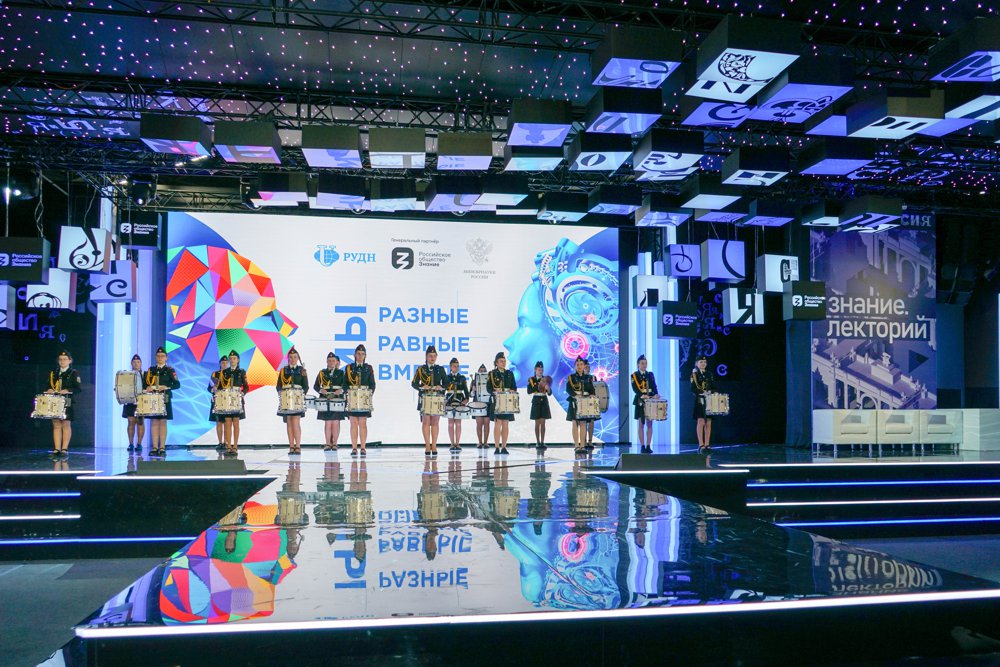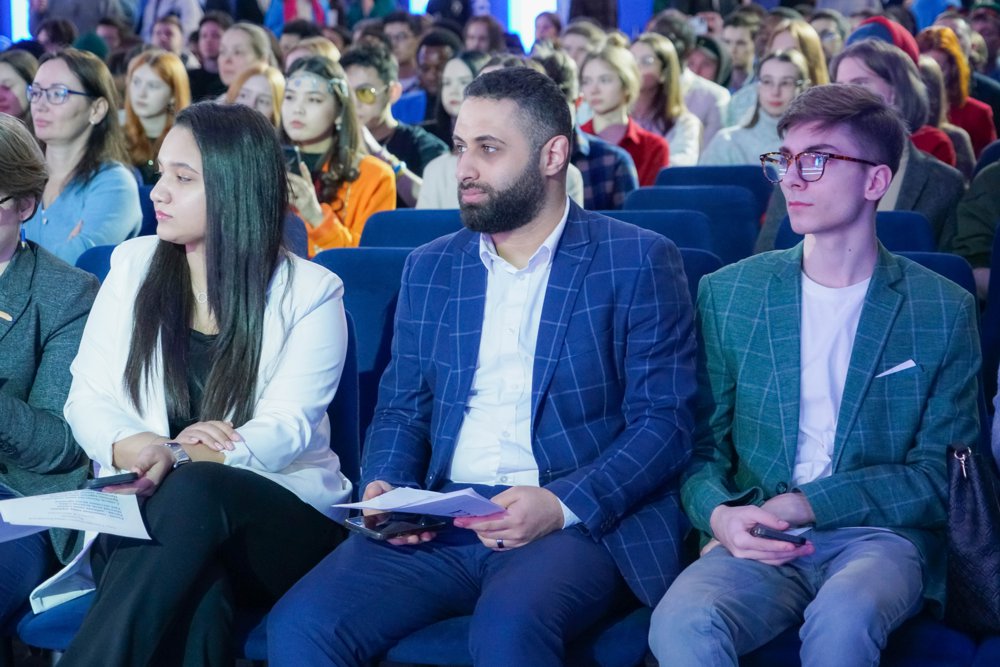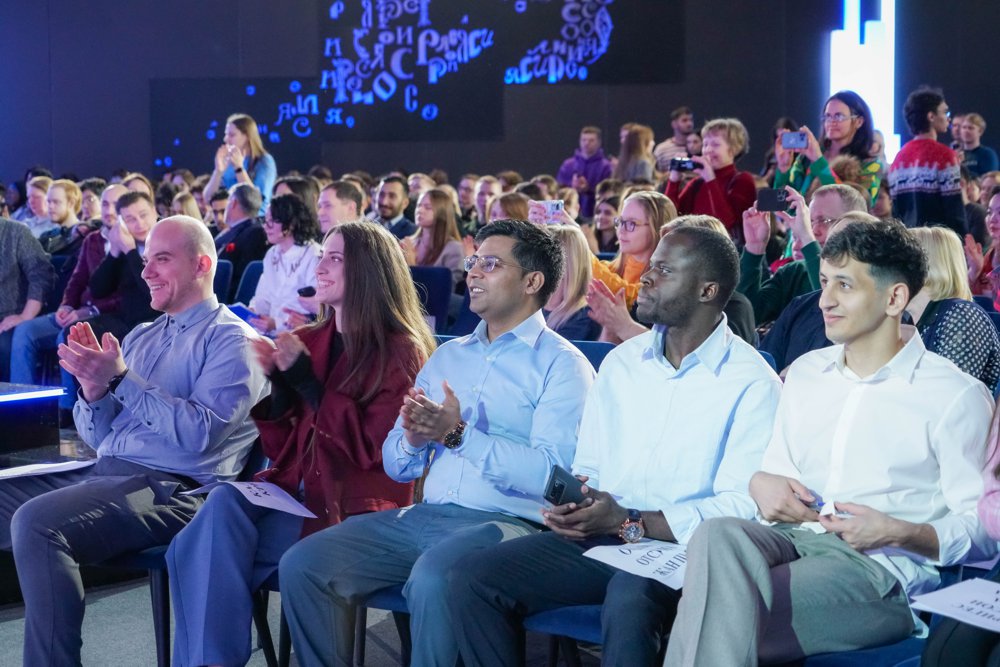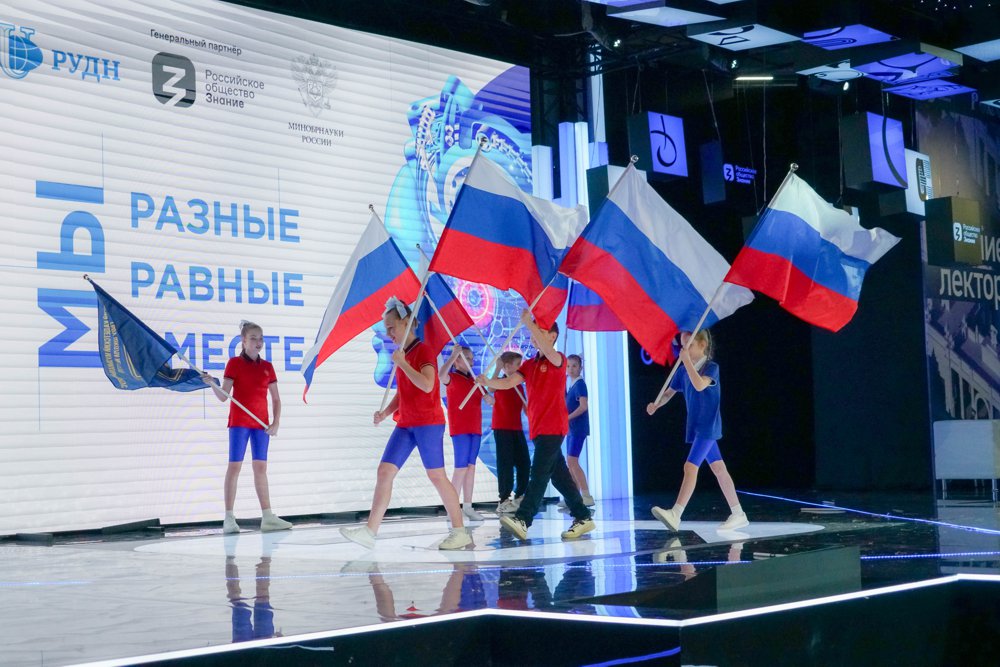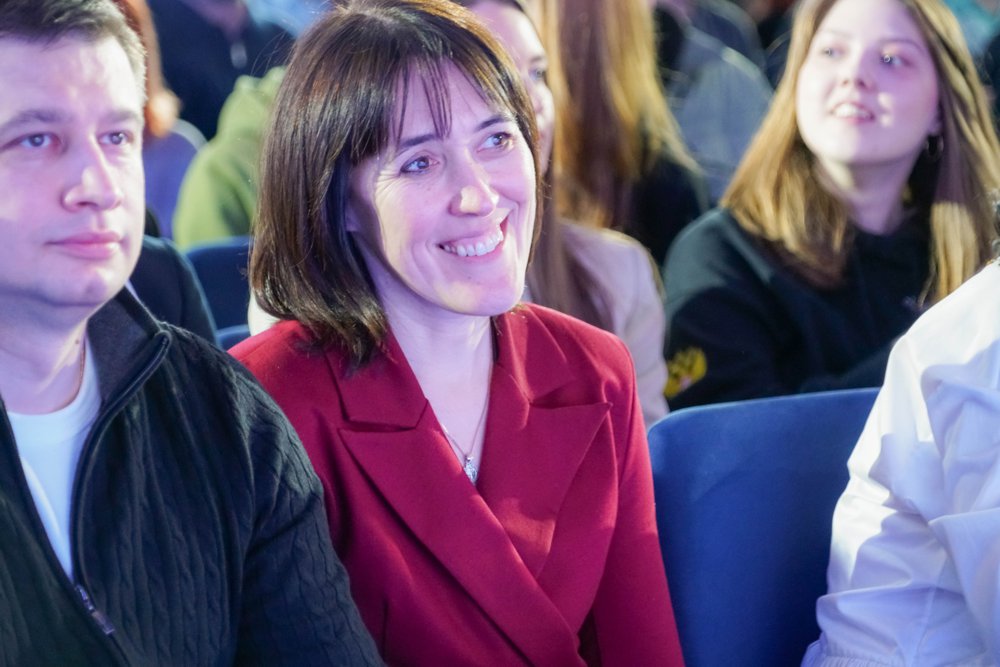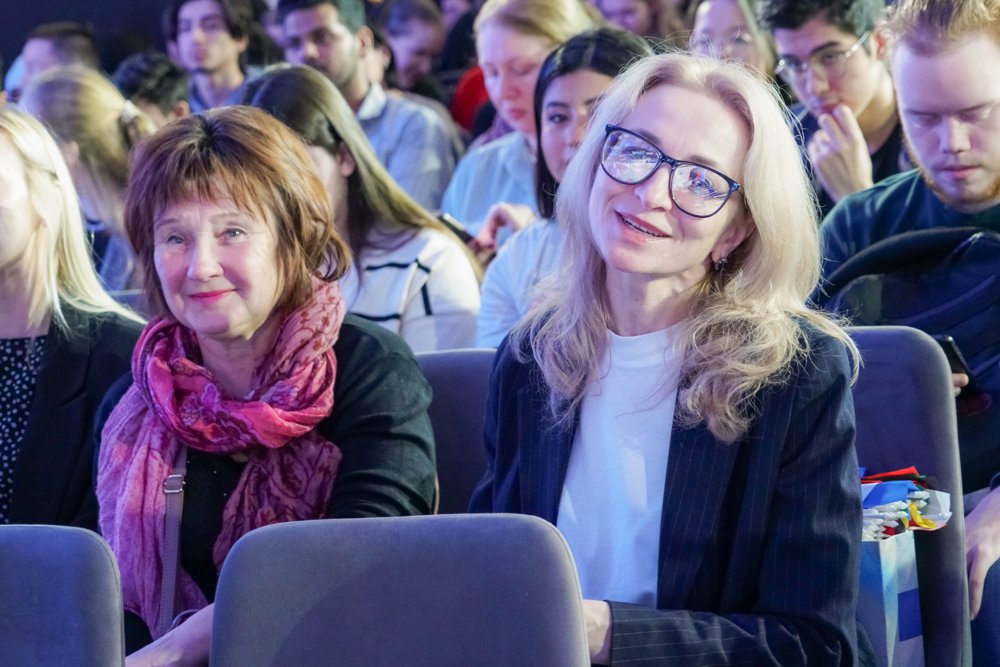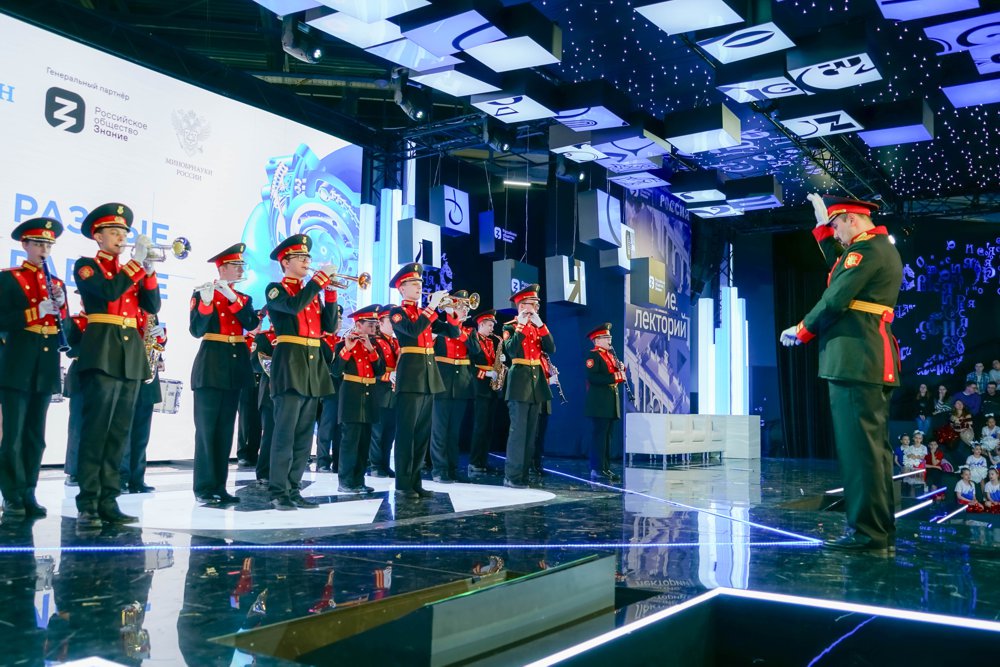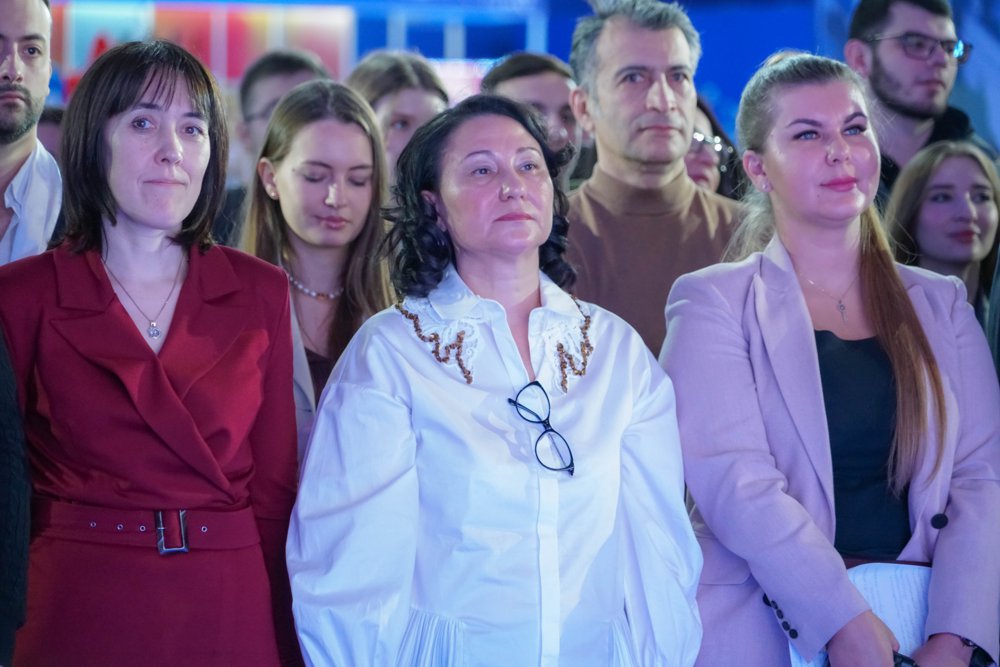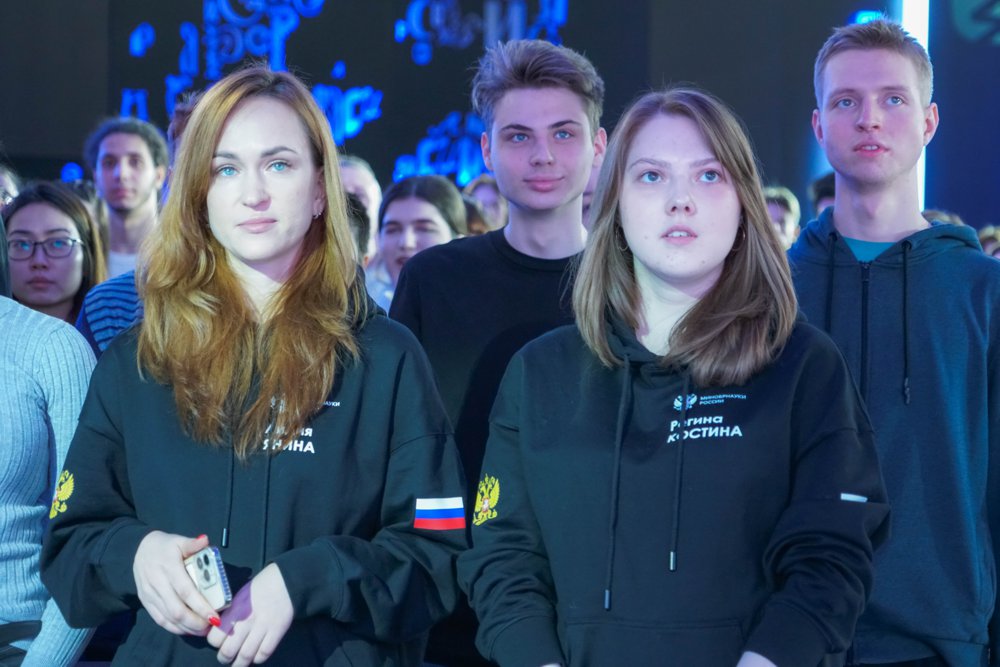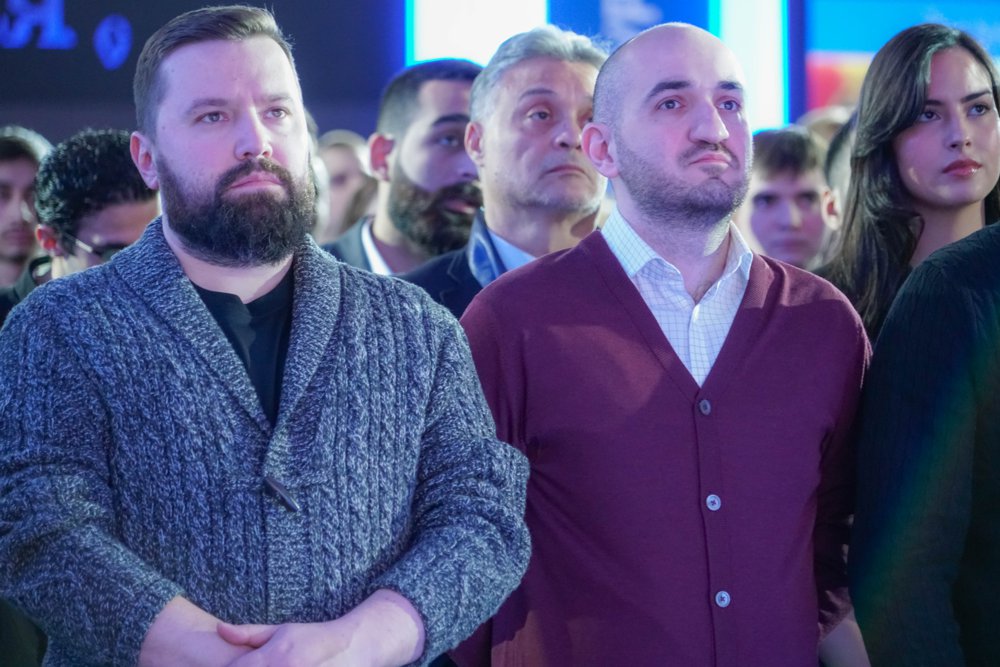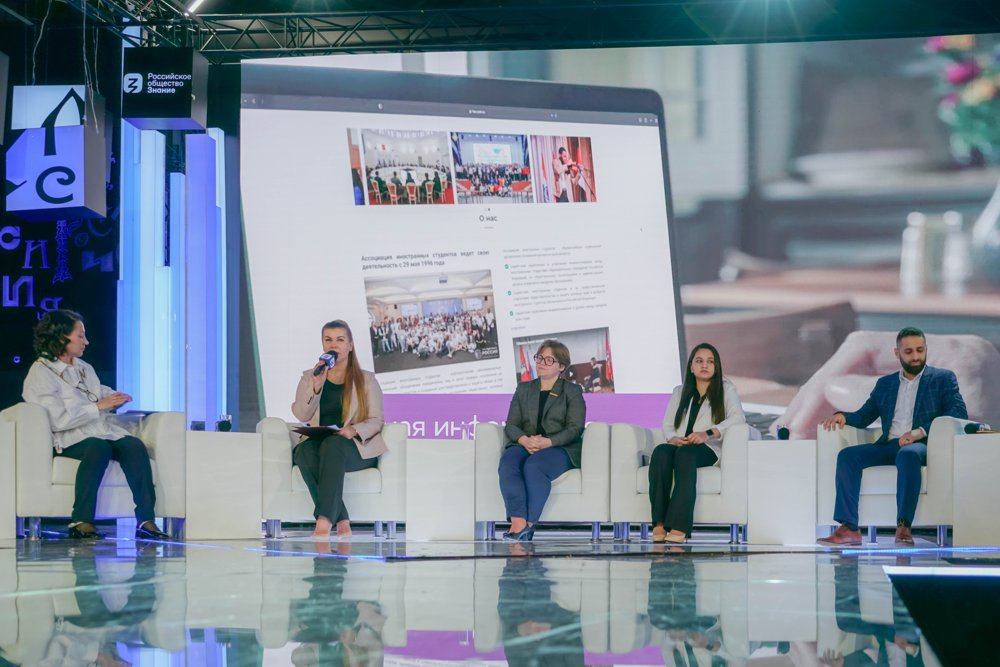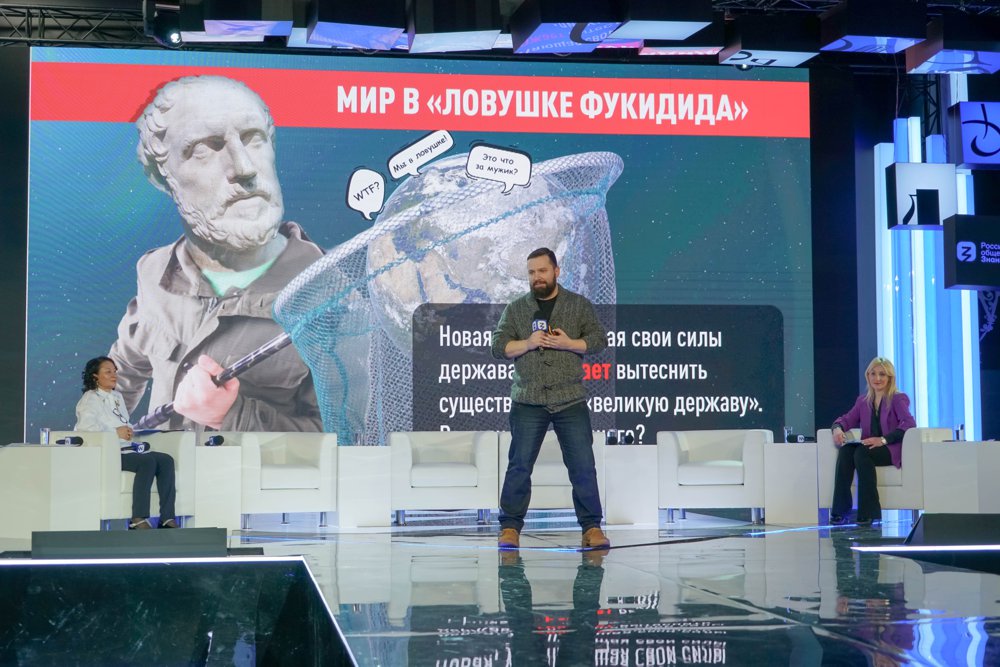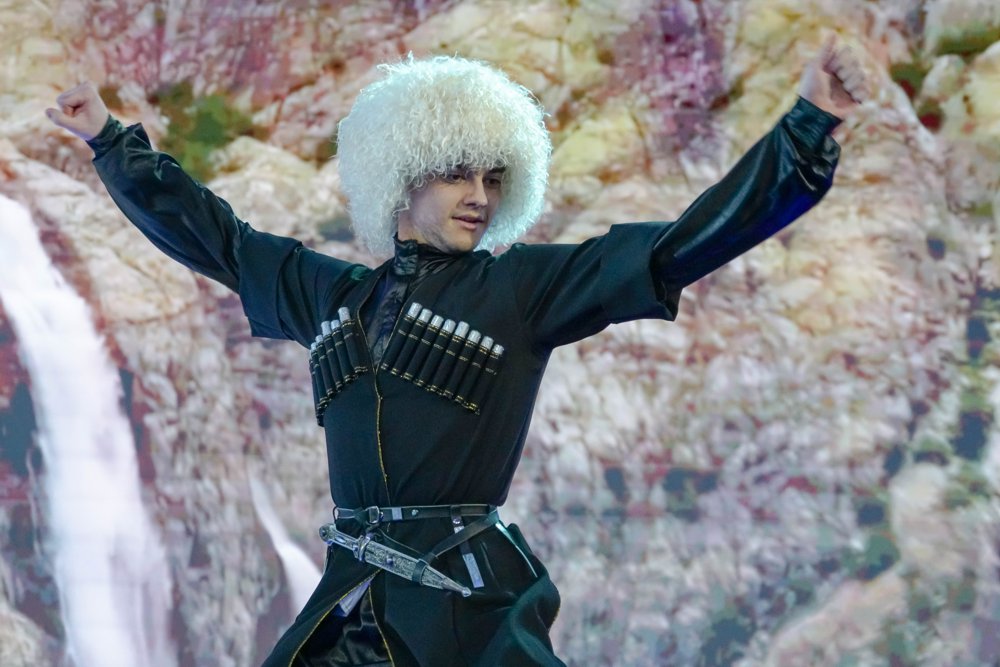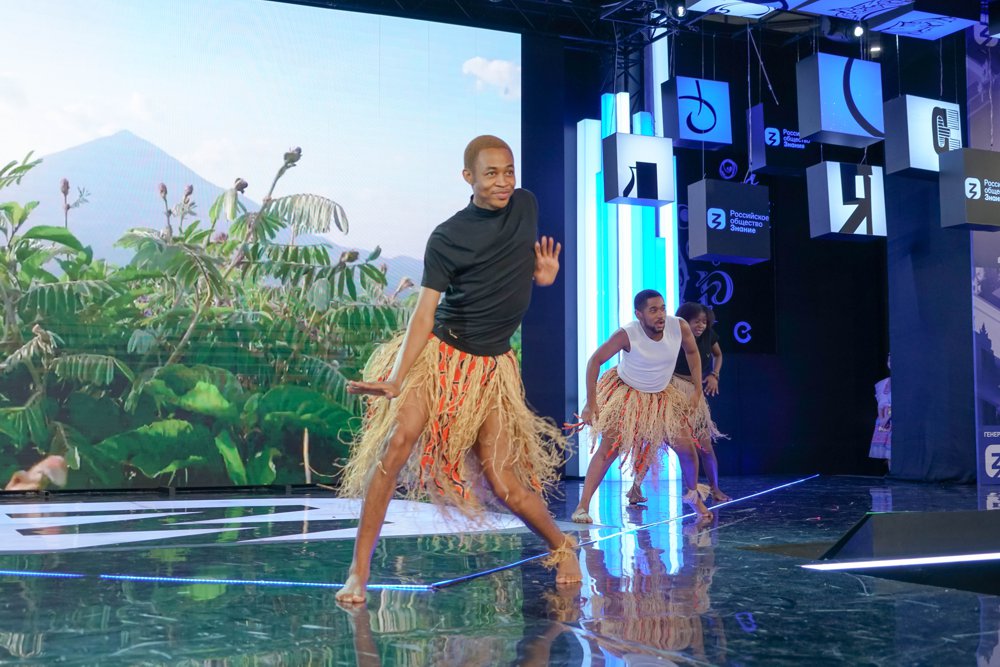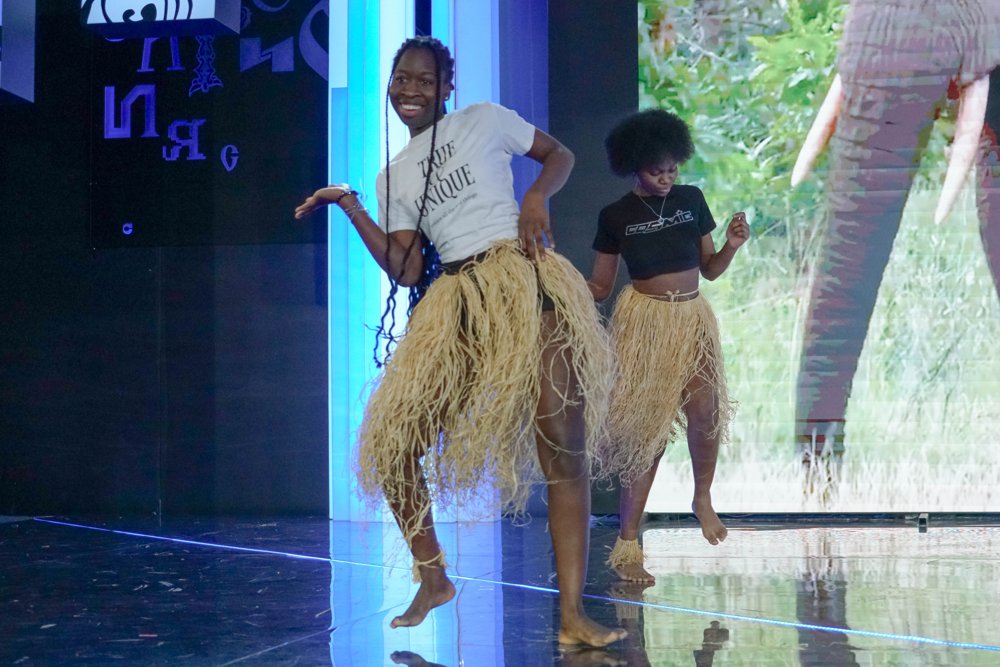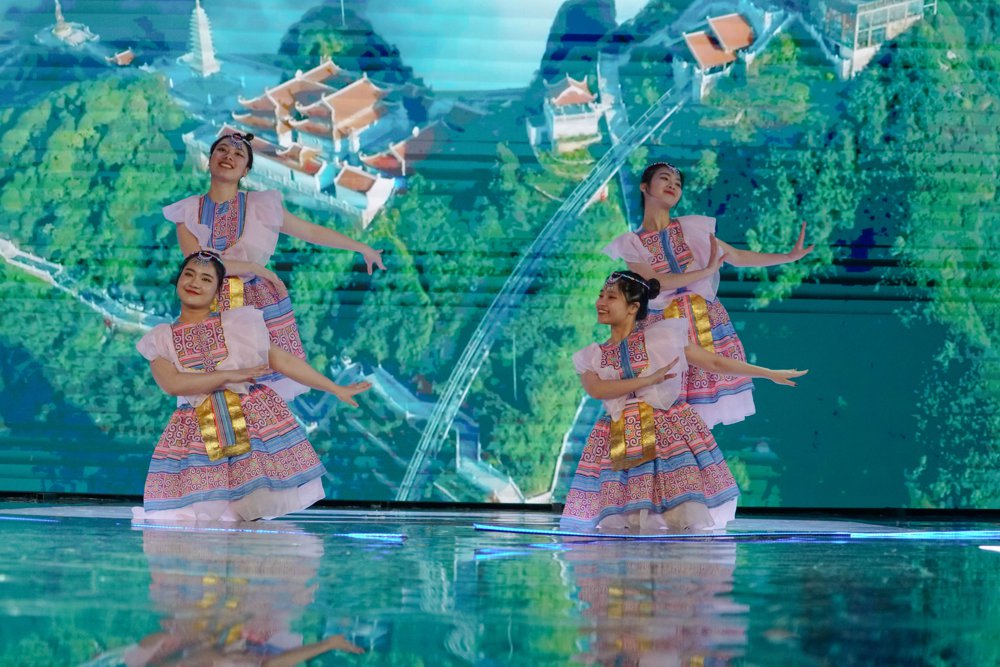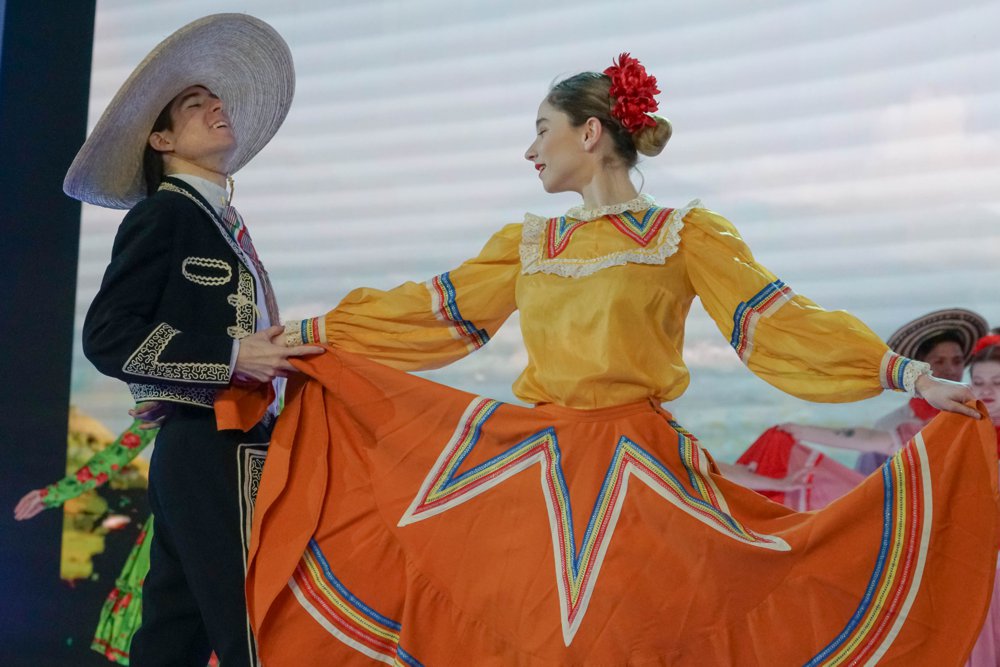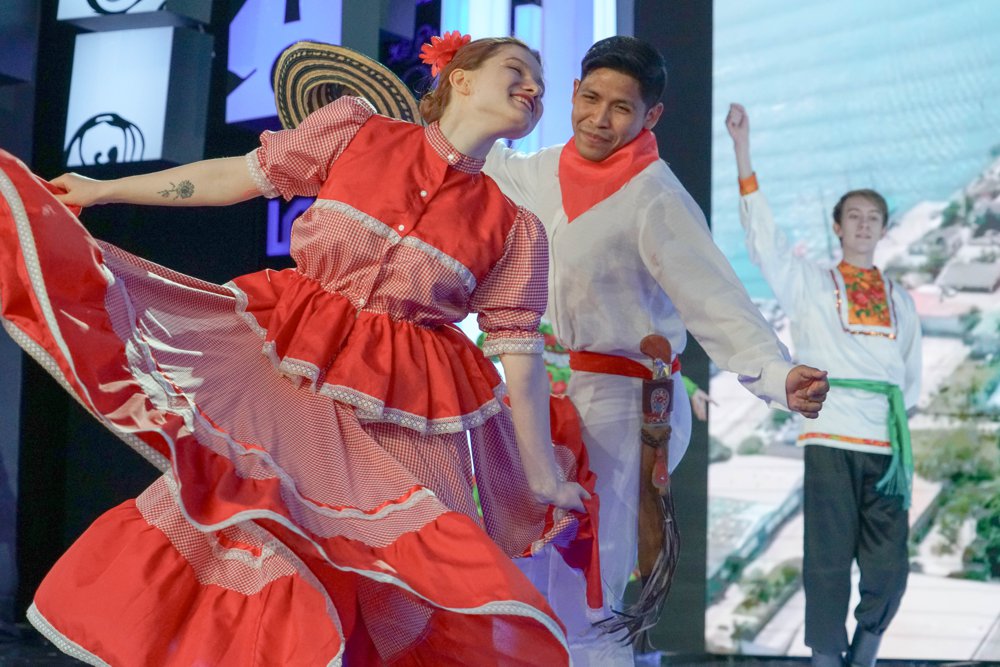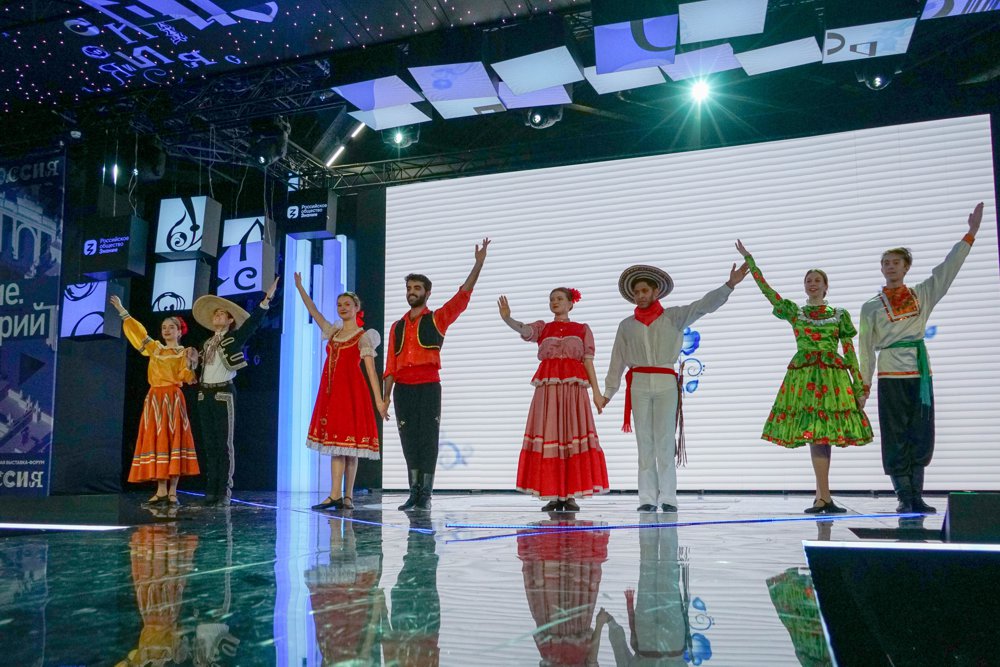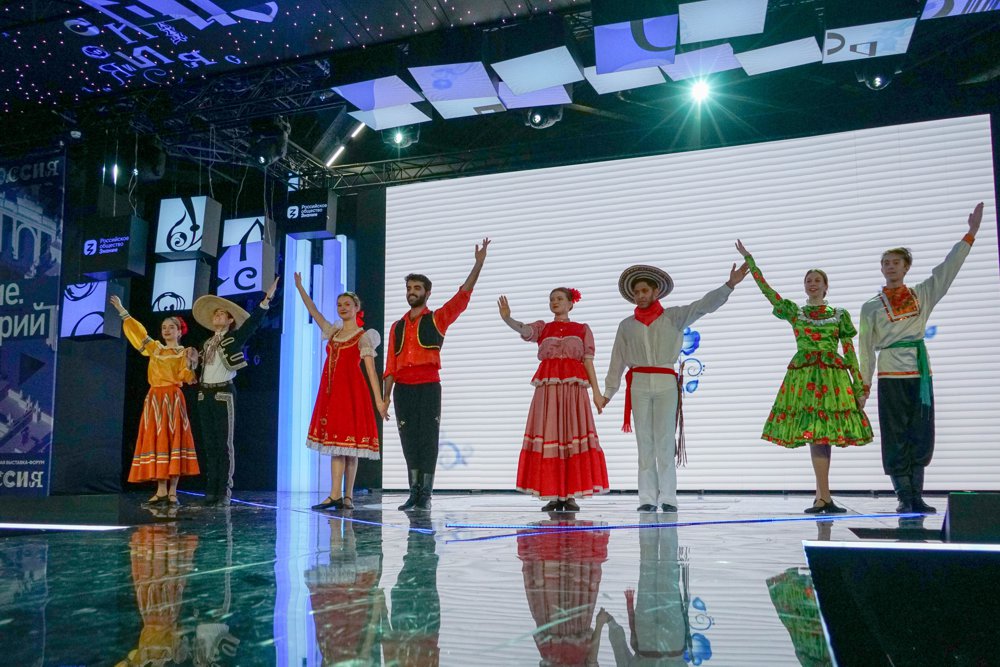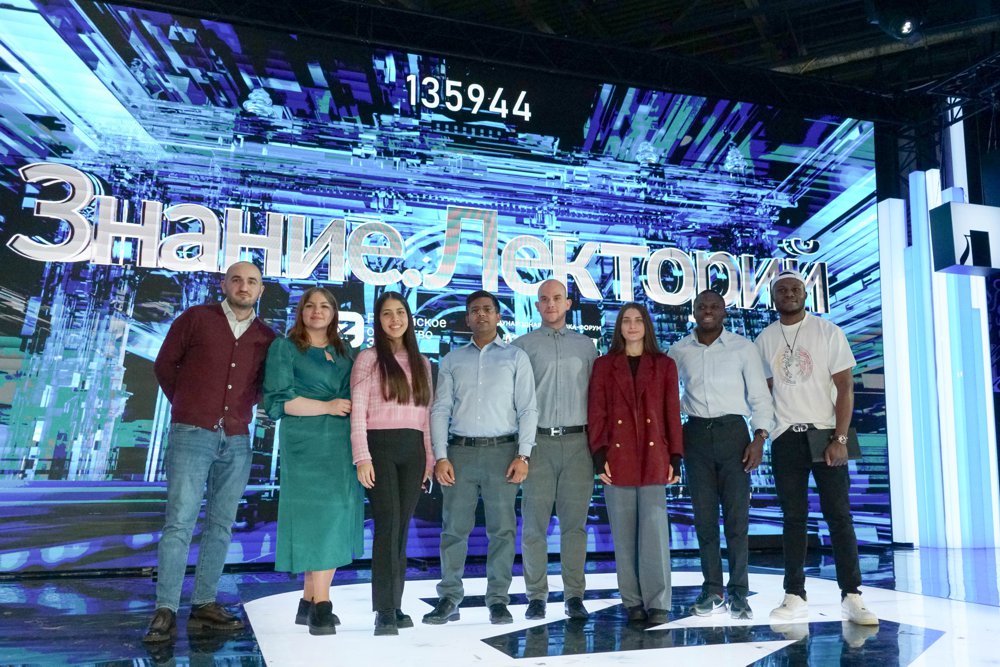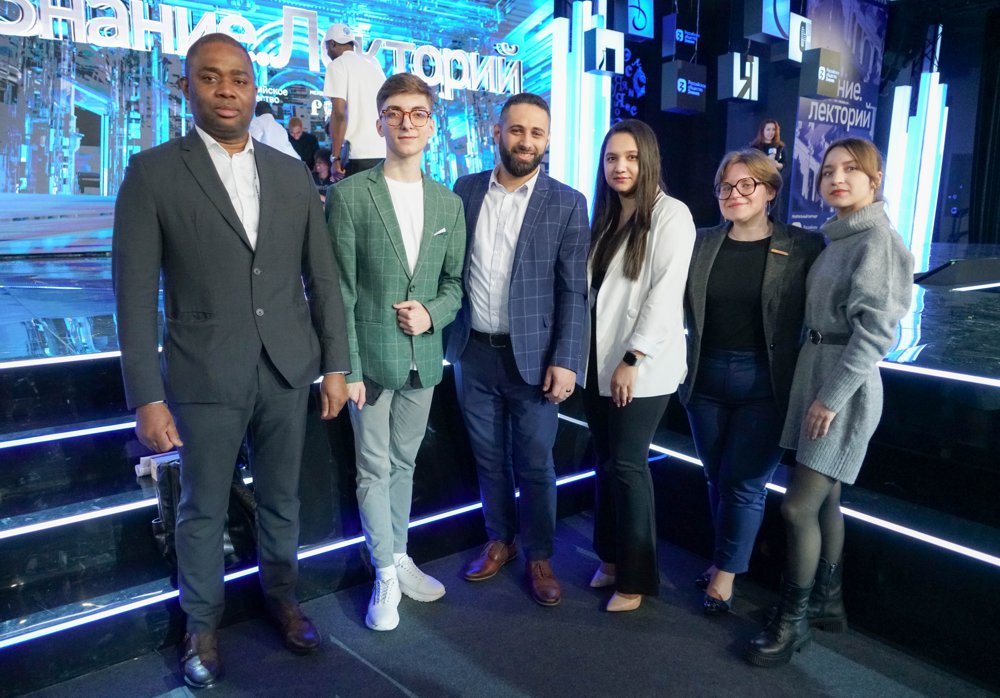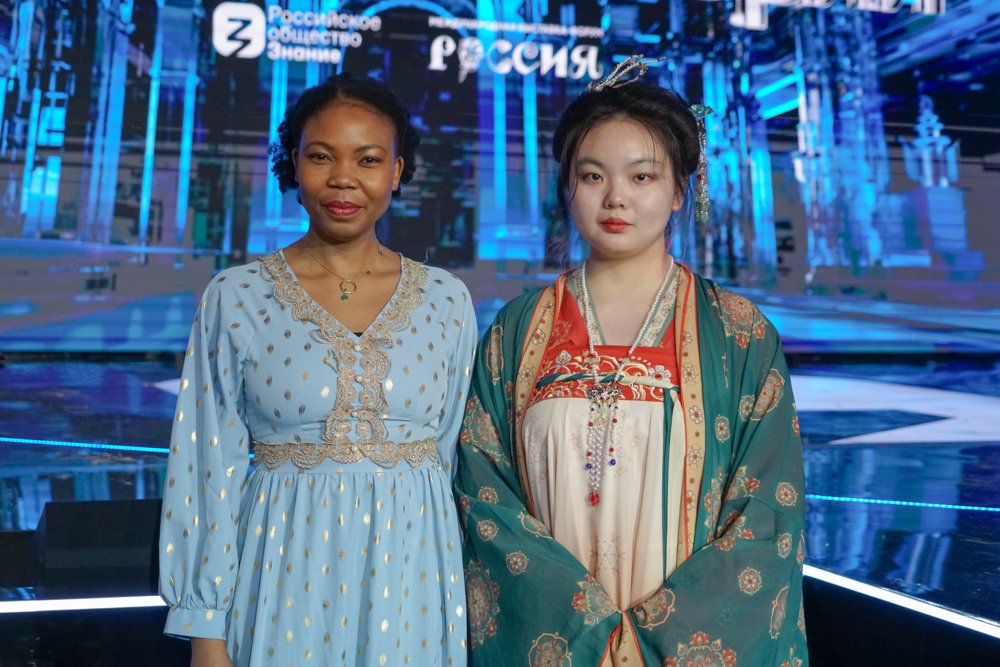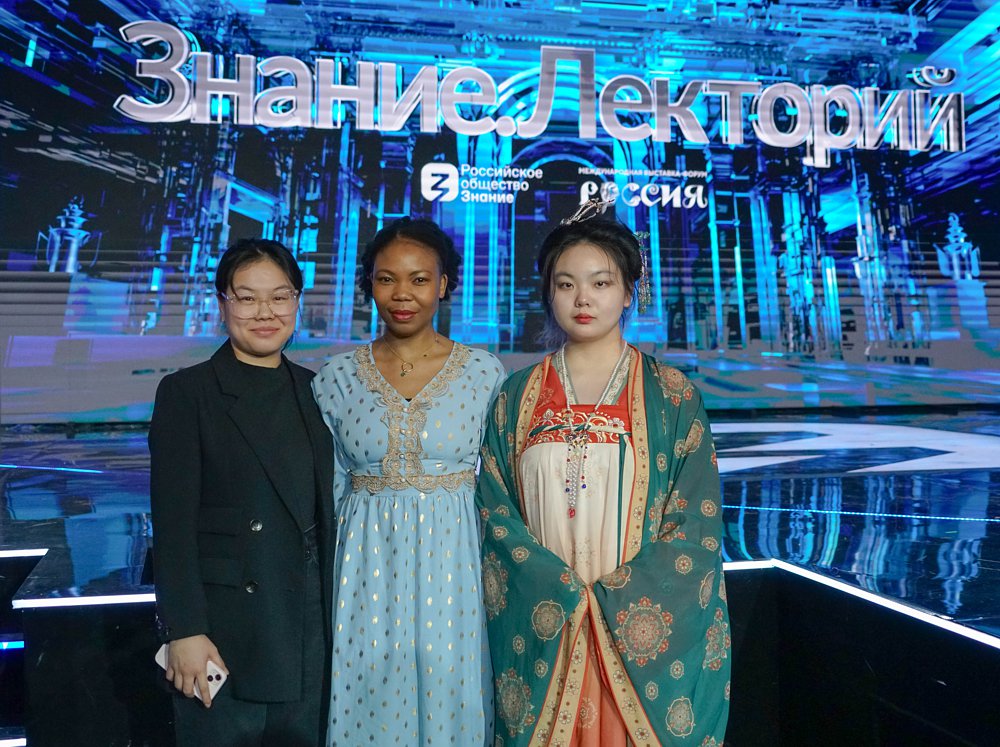Window to the World: RUDN University foreign students spoke at VDNH on the reason why education in Russia is more than receiving a diploma
At the beginning of the meeting the anthem of Russia was played. It was sung by the RUDN University foreign students. People sang along to the words of the main song of the country with special trepidation.
Then Olga Petrova, Deputy Minister of Science and Higher Education of the Russian Federation, gave a speech. She spoke about the programs that allow universities to develop and become more and more recognizable to the international audience.
This is, definitely, the ‘Priority-2030’ development program. In 2024 118 universities that form a network of consortia around them, will receive government support for the implementation of development programs. We have the ‘Advanced Engineering Schools’ project that is currently in an amount of 50. It is aimed at close interaction with the employer because the next stage is to create a working career.
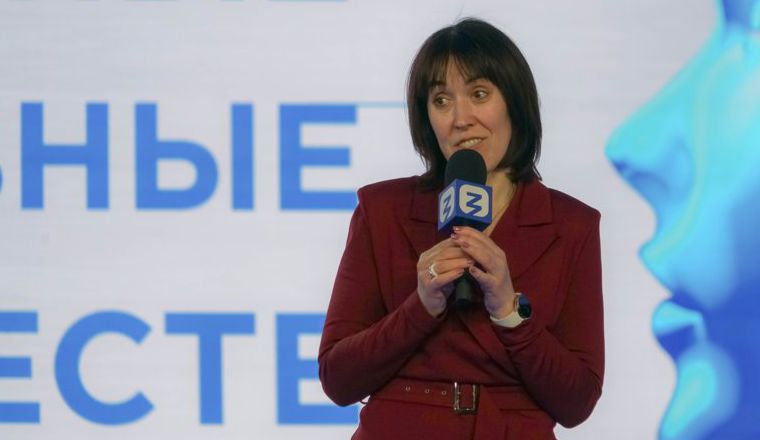
The lectures program was intense. But the culmination of the meeting was an open dialogue with foreign students of the most international university in Russia.
Initially, the university was created for children from Africa, Asia, and Latin America. Later, the USSR residents started to receive education as well. Now RUDN University is a large and friendly team. There are students from 162 countries. And that is a lot! Here you need to be able to respect traditions and customs. You need to know the standards of school education of each country in order to create conditions for obtaining quality higher education.
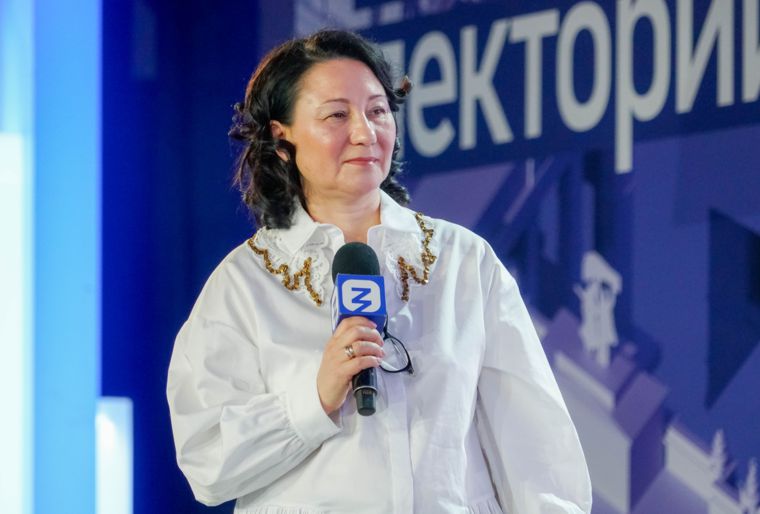
Today there are more than 11 thousand foreigners studying at RUDN University. And each of them has his own story of why they chose Russia for higher education.
My father studied in Voronezh. He told me a lot about the country, about studying here. For example, how they took exams twice a year because there is a set of exams here. At the same time, when I was still at school, I studied some aspects of Russian history — the First and Second World Wars, the confrontation between the USSR and the West in the post-war period. That’s how my interest in distant Russia was inspired. And when an opportunity came up to apply to study at one of the Russian universities, I could not refuse.
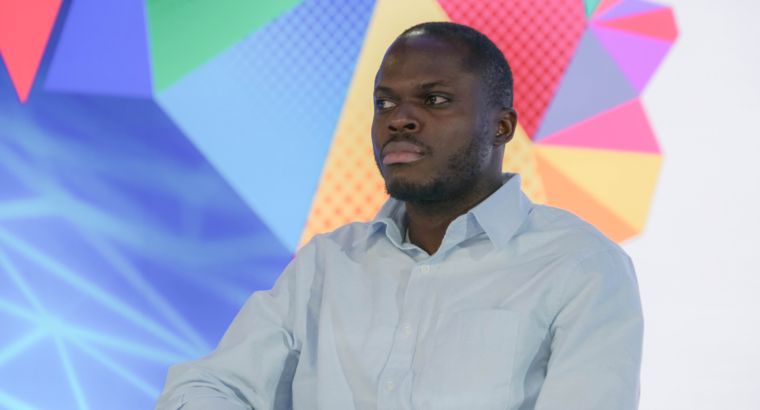
Viviana Rodriguez’s parents from Bolivia were also educated in the USSR. But Viviana chose RUDN University for a reason.
My mom is from Bolivia and my dad is from Panama. They lived in the same region but met at RUDN University. And if it wasn’t for the university, maybe I wouldn’t have been born. Since childhood, my mom and dad have been telling me a lot about the country. How beautiful Russia is, what a good education you can get here! And here I am, following in my parents’ footsteps.
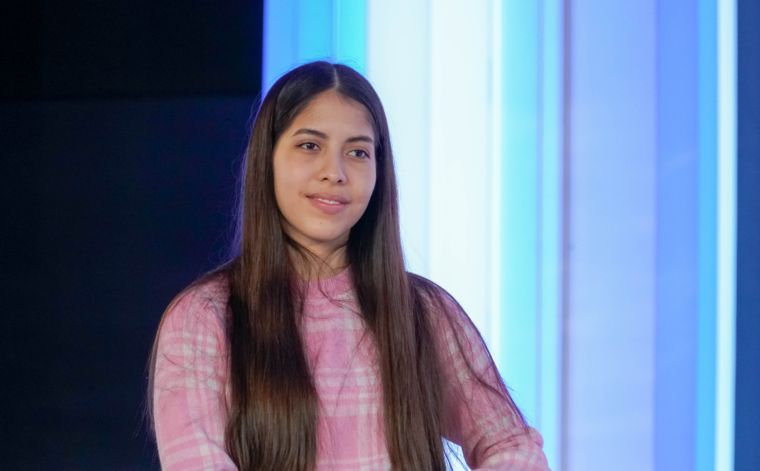
On the advice of his relatives, Haitham Alfalayleh from Bahrain also decided to go to Russia to study.
My uncle told me a lot about the country where he received his higher education. And choosing a university, I already understood — my choice was predetermined. When I came here, I was very impressed at how kind and helpful people are here. It is a strange feeling to say that people are kind. But until you experience it for yourself, you won’t realize how wonderful Russia is.
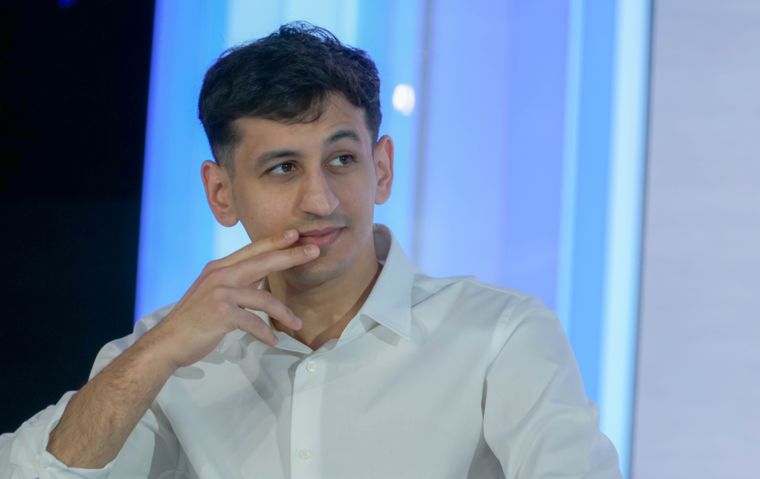
While some people come to study in our country thanks to the stories of their relatives, others are guided by different ideas. Eleftherios Hatzifeodoridis from Greece studied Russian History at the RUDN University master’s program. When asked why he decided to trade the unsetting Greek sun for Moscow winters, he answers.
The history of Greece and Russia is closely connected. Since ancient times, our paths have constantly crossed in religion, politics, and economics. And after thousand years of relationship, I feel that our peoples are still together. This is a connection at the historical level, it cannot be broken. For me, as a Greek, Russia is my second homeland.
Of course, there is not much sun here, especially in winter. But there is Sochi, where you can always go to wait out the winter. Although over time, the sub-zero temperatures and darkness at 7am no longer seem like something terrible.
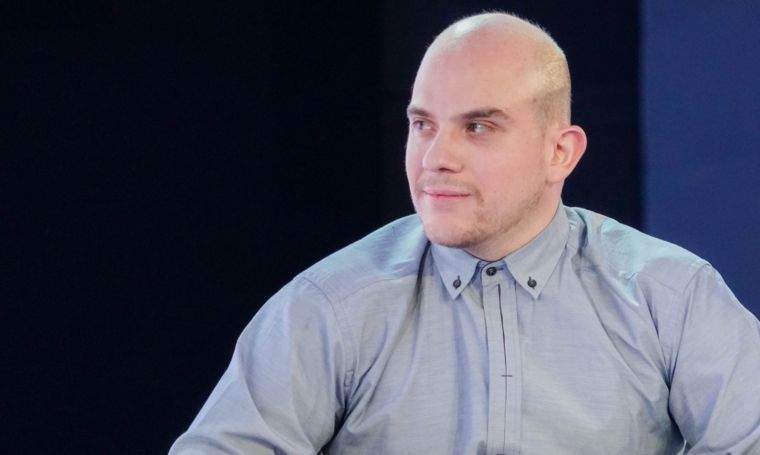
In Russia, foreign students not only receive higher education. Here they participate in competitions, create projects, and take their first steps in their career.
RUDN University has all the opportunities for growth. For example, recently my team and I participated in the “F5: Renewal” contest. Lectures and master classes were replaced by the development of our own project in the sphere of student self-governance. I improved my skills, made new friends, and won a cash prize.
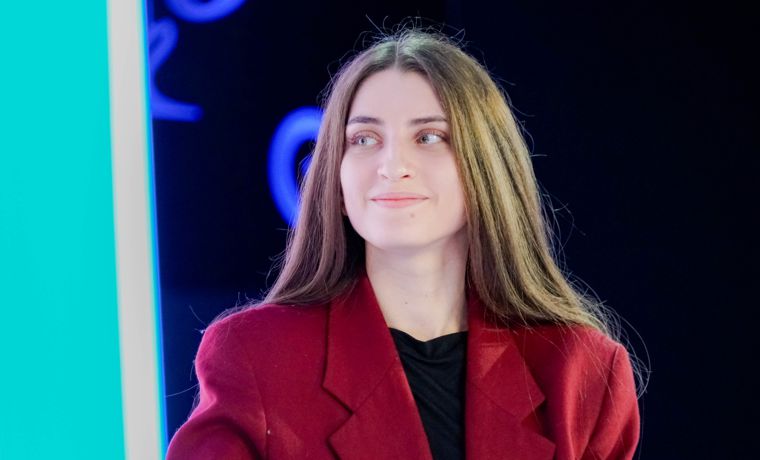
She is echoed by Akil Mohammad from India. Akil combines his master’s studies with his work in the Russia-BRICS Project Office, which has recently been set up at Rosmolodezh.
I am engaged in the projects that are aimed at developing cooperation among the youth of the countries of the association. One of the main events is the BRICS international camp. We invite 200 students from Brazil, Russia, India, China, and South Africa to it. This is a good opportunity to get to know the country, its traditions, and customs.

And when the meeting comes to its logical conclusion, Hamed Muhyedin Abou Zahr is unexpectedly invited to the stage. Now he is the honorary Consul of Lebanon to Peru, but a few decades ago he was a student at RUDN University, just like the heroes of the lectures.
Now we have smartphones, thanks to which we can easily find out what is going on in other countries — what people there write about, what they care about, what they live for. But when I was studying, we didn’t have the Internet. And in the first years I always wondered how people from different parts of the world could live in one place. People who speak almost every language in the world. How can we be together if we are different? And what united us later was the Russian language. We began to talk. And in a dialogue, we found the points of contact and interests.
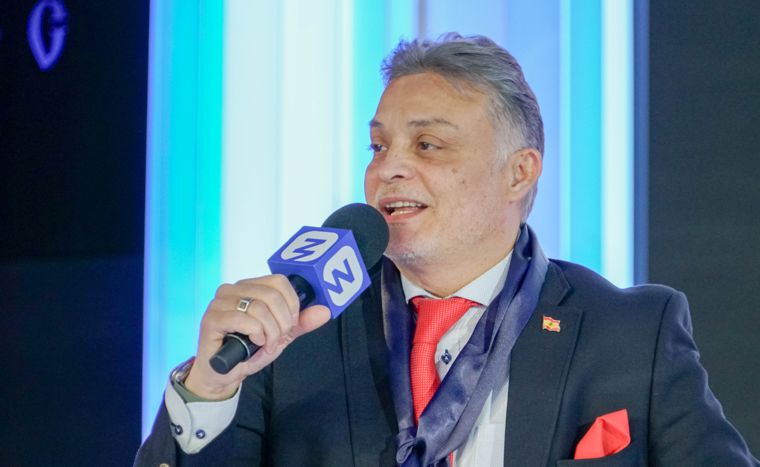
Foreign students in Russia find family and friends and receive an education. But their connection with the country does not end with their receiving a diploma. When they return home, they are no longer just specialists. They are ambassadors of the Russian education in their country. The program “Ambassadors of Russian Education and Science” coordinated by RUDN University was also discussed at the lectures. Successful foreign students, employees and graduates of Russian and Soviet universities, state and public figures can receive the title of ambassador. In November 2023, the names of the first 11 ambassadors whose mission is to promote education and science of Russia at the leading international and socially important platforms were announced.
The lectures at VDNH ended with a concert of the RUDN “Rhythms of Friendship” dance group. The students performed national dances of the peoples of Russia, Latin America, Africa, and Asia. The journey into the world of cultures was bright and rich. The applause at the end of the meeting was loud and long.
The material was prepared by Anastasia Zhuravleva.
RUDN University staff and alumni received state and departmental awards at the State Kremlin Palace during a festive concert in honor of RUDN 65th anniversary.
An architectural-landscape project by a 5th-year student of RUDN has been shortlisted for the annual International Professional ADD AWARDS 2024 for architects, designers, and developers in the “Urban Environment” category.
RUDN University employees’ work and contribution to the development of the university cannot go unappreciated. The Ministry of Science and Higher Education of Russia recognizes talented university employees and present them with various departmental and state awards.
